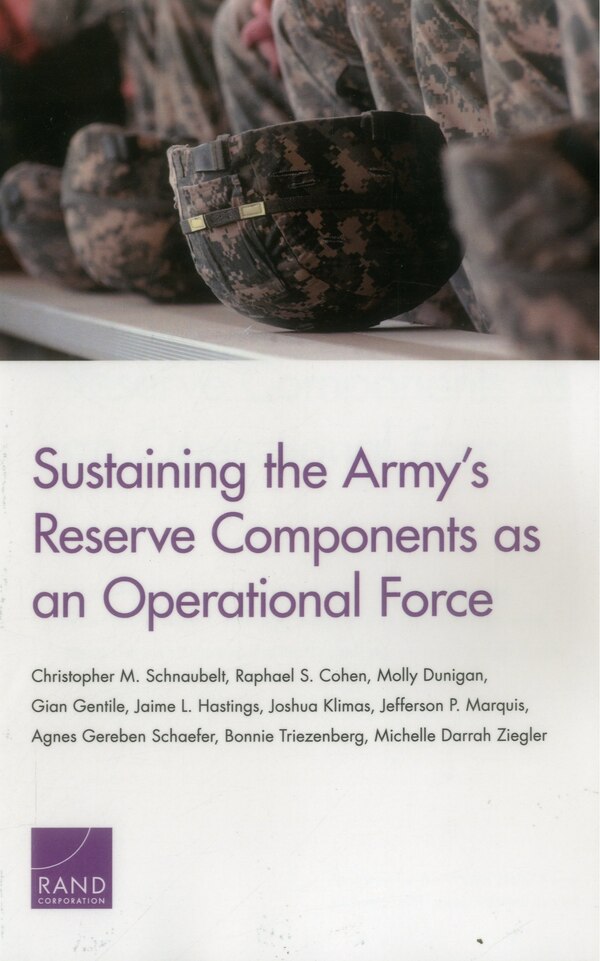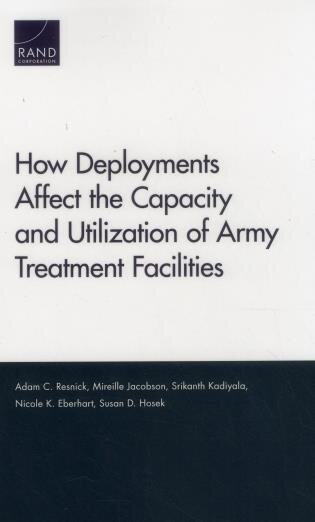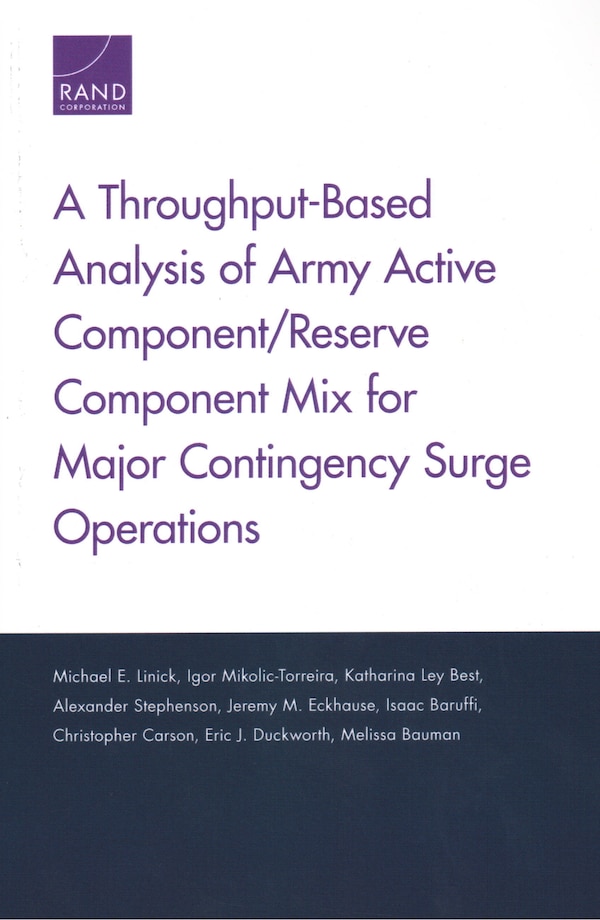Home
Effect Of Operational Deployments On Army Reserve Component Attrition Rates And Its Strategic Implications by Jon A Jensen, Paperback

Coles
Effect Of Operational Deployments On Army Reserve Component Attrition Rates And Its Strategic Implications by Jon A Jensen, Paperback
From Jon A Jensen
Current price: $59.00
Loading Inventory...
Size: 0.12 x 9.69 x 0.28
*Product information may vary - to confirm product availability, pricing, and additional information please contact Coles
This monograph will assess the effects of operational deployments on Army Reserve Component attrition rate and its strategic implications for the U. S. Army. It will challenge the belief that the current use of the Army Reserve Component in peace time operational deployments is having a negative effect on its attrition rate. Following the end of Operation Desert Shield/Desert Storm the United States' military began a dramatic down sizing of its active and reserve forces. By the end of 1993, the U. S. Army had been reduced from its late 1980s size of eighteen combat divisions to only ten combat divisions. As the draw down of military forces continued the number of operational deployments increased for the active Army. Haiti, Somalia, Bosnia, and Kosovo were added to the active Army's already crowded plate that included the Multinational Force and Observes in the Sinai Peninsula and Operation Southern Watch in Southwest Asia. It became apparent that the active Army required assistance with these additional missions or risk a degradation of its unit readiness and morale. As a result of this dilemma, the decision was made to activate units and personnel of the Army National Guard and Army Reserve to support on-going deployments. This monograph reviews the findings of four studies conducted to determine the effects of operational deployments on the U. S. military. In addition, the attrition rate for the Army National Guard and Army Reserve is reviewed, to include high demand units, in order to determine linkages between the increased use of the reserve component and corresponding attrition. The conclusion of the monograph is that peace time operational deployments are not having a negative effect on the attrition rate of the Army National Guard and Army Reserve. Supporting this conclusion is the consistent decrease in the Army National Guard's attrition rate during the period 1993-2000 and the fairly steady attrition rate of the Army Reserve during the same period. Recomme | Effect Of Operational Deployments On Army Reserve Component Attrition Rates And Its Strategic Implications by Jon A Jensen, Paperback





















